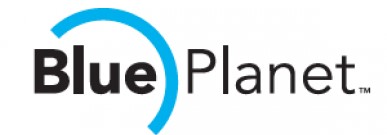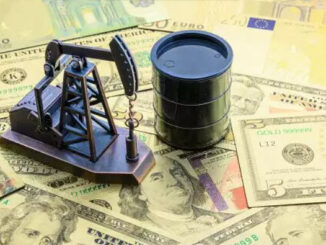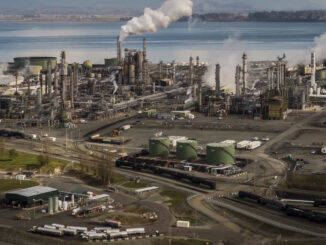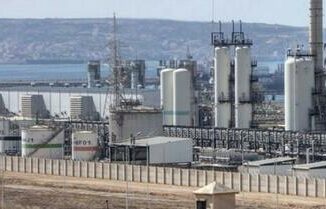
Chevron Corporation on Jan. 14 said it made an investment in Blue Planet Systems, a start-up company that uses its proprietary carbon capture process to repurpose flue gas from refineries and other industrial operations into building materials.
“Carbon capture, utilization, and storage, or CCUS, is viewed to be essential to advancing progress toward the global net zero ambition of the Paris Agreement,” said Barbara Burger, vice president of innovation and president of Technology Ventures at Chevron, in the Jan. 14 statement.
“This investment is made through our Future Energy Fund which focuses on startups with lower-carbon technologies that can scale commercially, and we welcome Blue Planet to this portfolio,” Burger said.
Chevron did not disclose the amount invested in the San Jose-based Blue Planet made as a Series C investment, which is generally the last investment phase into a startup. However, Chevron in 2018 pledged to commit $100 million to its the Future Energy Fund to fund new technologies like these.
“Chevron Technology Ventures’ ongoing investment in carbon capture and utilization technologies supports Chevron’s focus on a diverse portfolio of lower-carbon solutions,” Chevron said in the statement.
Pilot projects planned to advance commercial applications
Chevron and Blue Planet also executed a letter of intent to collaborate on potential pilot projects and commercial development of the technology, which is likely to implemented on some of Chevron’s US refineries as well as other facilities.
Chevron has over 1 million b/d of US refining capacity, mainly concentrated in California and on the US Gulf Coast, although it has a small refinery in Salt Lake City, Utah.
According to its 2019 Corporate Sustainability report, Chevron aims to cut net greenhouse gas emission intensity by 5%-10% from 2016 to 2023. For the refining sector specifically, Chevron will continue to reduce GHG emissions. Already the company has reduced Scope 1 emissions, which are direct emissions of refinery flue gas, to 14 million mt of CO2 equivalent in 2019 from 15 million mt of CO2 equivalent in 2015.
Blue Planet’s technology does not require the flue gas emissions to be cleaned prior to processing, it uses less energy and permanently captures CO2 and converts to “to a lower-carbon product for sale in the growing global market of aggregates” which includes cement blocks and other building materials.



